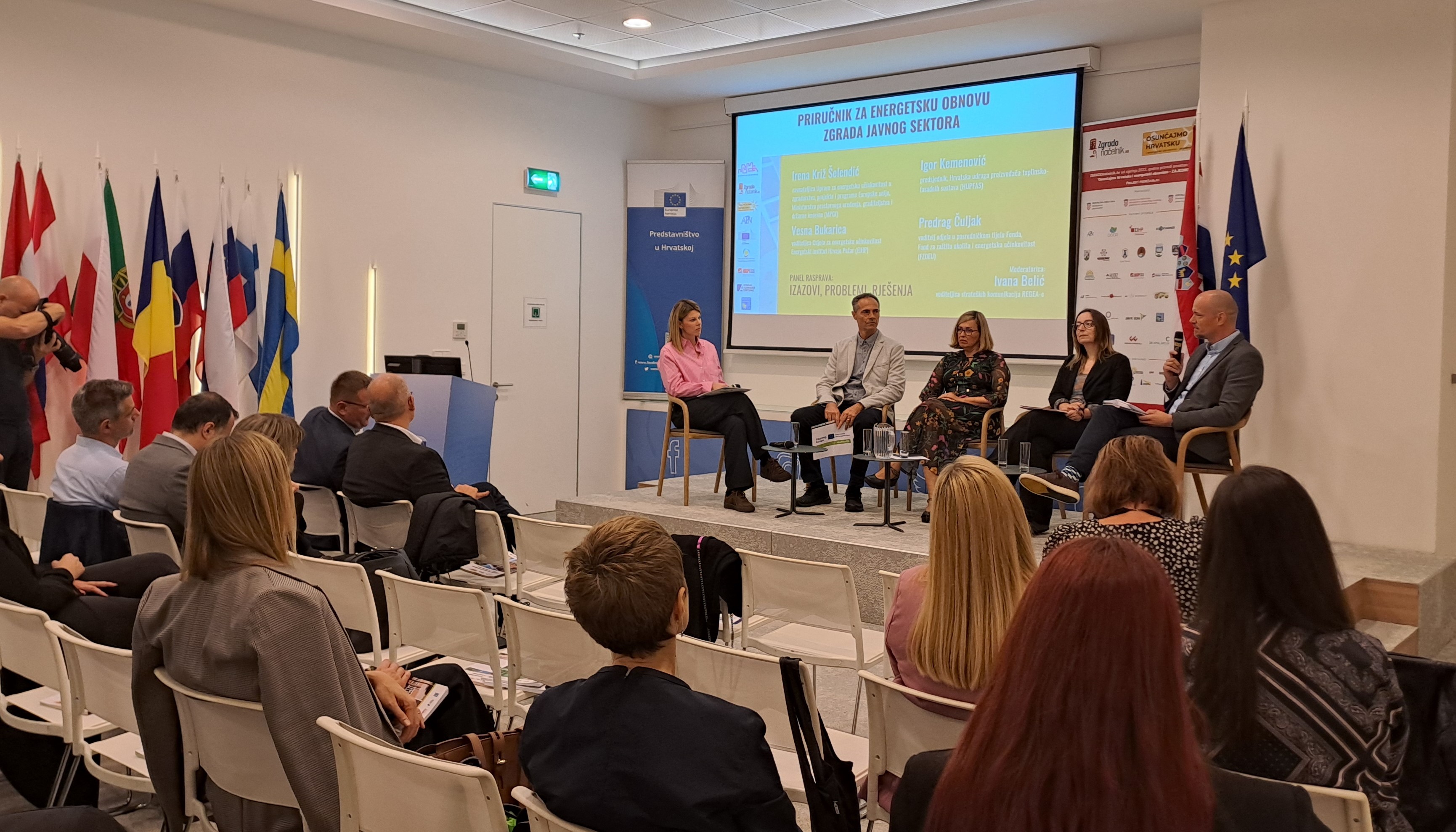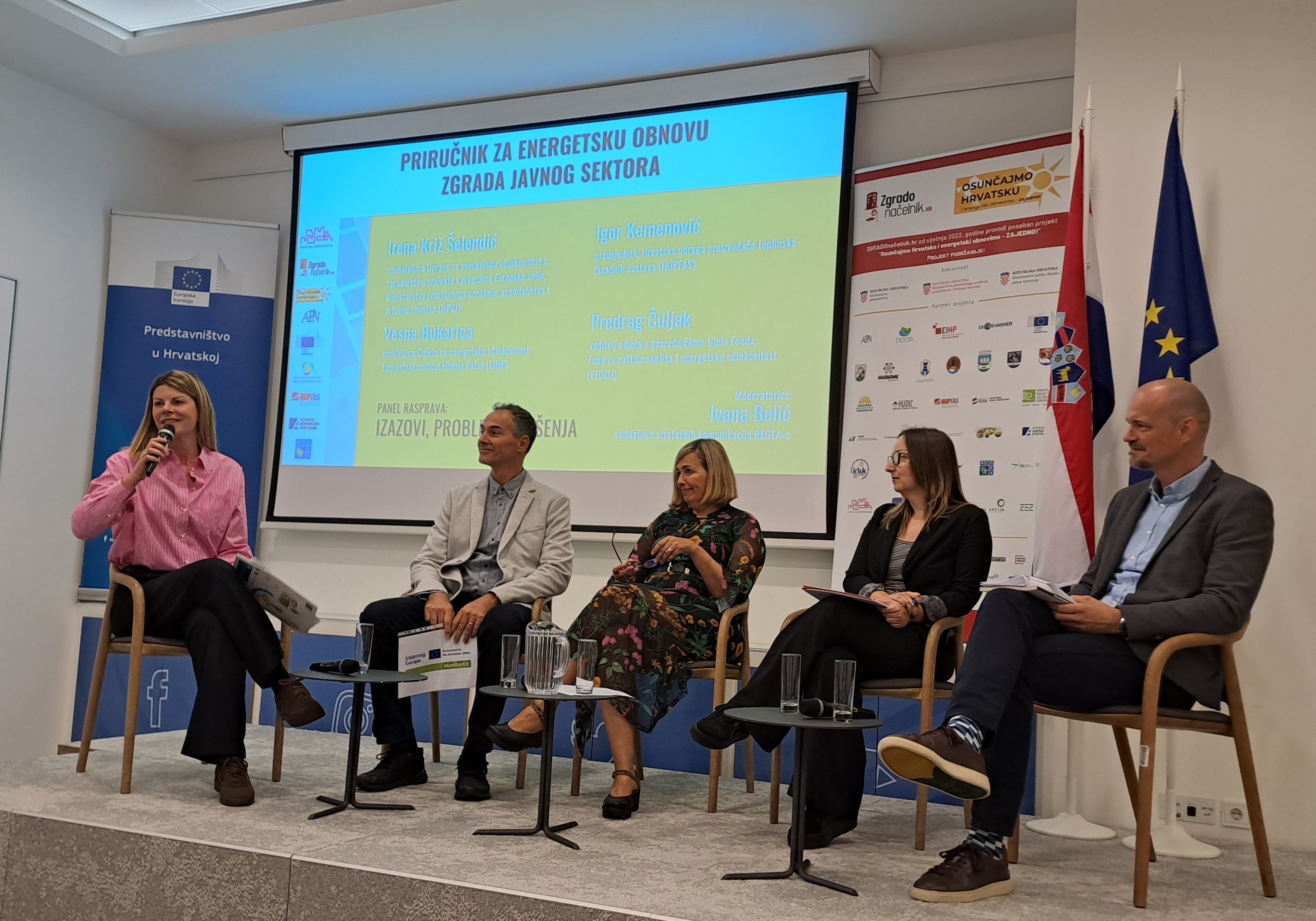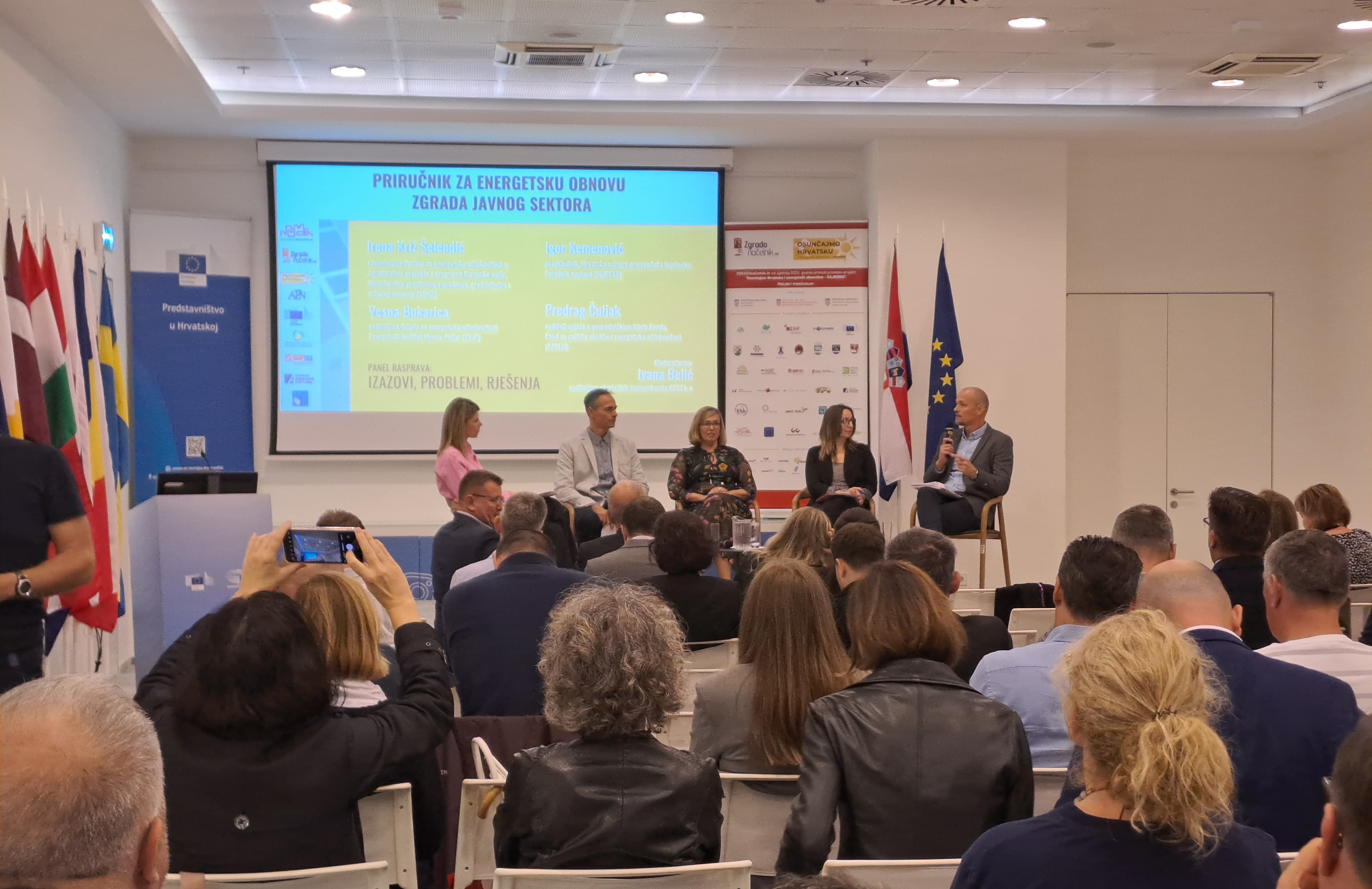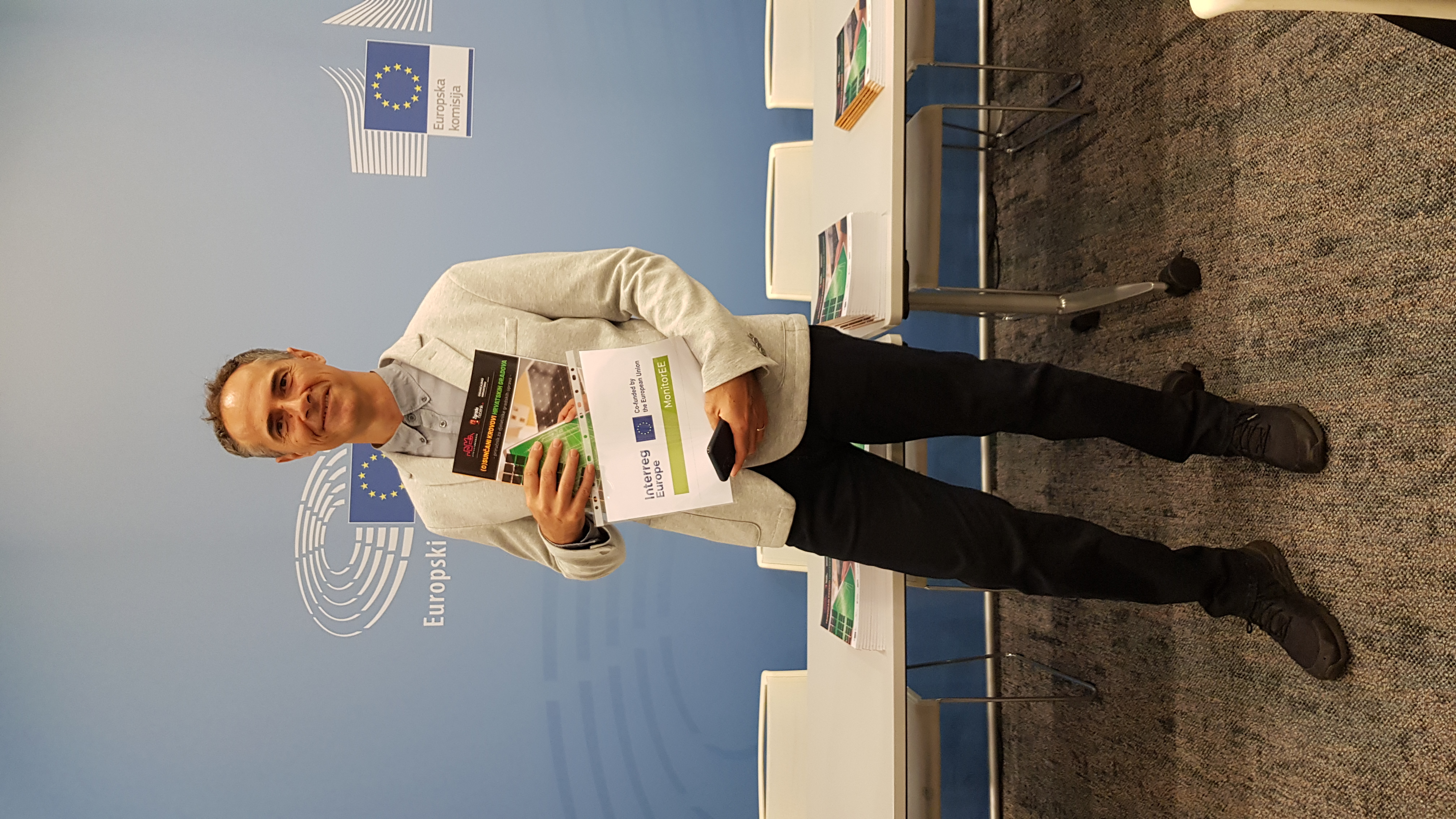Fund representatives participate in today’s launch of the Manual for energy renovation of public sector buildings.
The Manual for energy renovation of public sector buildings was presented at Europe House today. The manual was developed by ZGRADOnačelnik.hr in cooperation with the Environmental Protection and Energy Efficiency Fund, the Association of Cities, the North-West Croatia Regional Energy Agency of (REGEA), the Agency for Legal Transactions and Real Estate Brokerage (APN), the Croatian Association of Manufacturers of Thermal Façade Systems (HUPFAS), the Representation of the European Commission in Croatia, and other partners.
Frist, Andrea Čović Vidović, Deputy Head and Head of Media at Representation of the European Commission in Croatia informed that buildings in the European Union were inefficient and that we had to focus on reducing GHG emissions by 55% until 2030.
This manual aims to clarify step by step what such processes look like, what the obstacles and challenges are as well as opportunities, what the energy renovation projects so far looked like across Croatia, how these projects unfolded, the challenges encountered, and how they had been solved. Two panels were held at the presentation discussing the experiences and examples from the field, financing, issues and solutions during the energy renovation of public sector buildings. Predrag Čuljak, head of Department in the Intermediate Body of the Fund, presented the role of the Fund in the energy renovation of public buildings. "For a number of years, the Environmental Protection and Energy Efficiency Fund has been consistently encouraging various projects to increase energy efficiency and the use of renewable energy sources. As far as public buildings are concerned, in 2020 the Fund launched a call for co-financing the energy renovation of buildings with the status of cultural property worth 1.2 million euros. In 2021, the Fund had a call for the energy renovation of cultural heritage worth EUR 4 million for local and regional self-government units, state administration bodies, public institutions and budget users. So far, over 400 million euros have been spent through two OPCCs on projects in the building sector, which include public buildings," said Čuljak, adding that in the preparation of such complex projects, expert assistance provided by the Fund can significantly simplify the preparation process.
Irena Križ Šelendić, director of the Directorate for energy efficiency in the building sector, EU projects and programmes at the Ministry of Physical Planning, Construction and State Assets, said that public buildings must be the vanguard of renovation. "We used to have an obligation to have three percent of the floor area of buildings owned by the central government renovated, but we have exceeded that long ago. Now this percentage applies to three percent of all public buildings," said Križ Šelendić, emphasising this would require a lot of money and manpower, which is perhaps a bigger problem than money itself. "Energy is not free, the climate is changing, and Europe's goals are ambitious. They may be unattainable, but they should not be the main motive for retrofit, instead we should be driven by the desire to have the buildings we deserve to have. Everything is written in the manual in a simple way," said Julije Domac, director of the Northwest Croatia Regional Energy Agency. Various financing models are available to finance the energy renovation of public buildings. In addition to grants from European and national programs, however, due to insufficient allocations, the European Commission is increasingly directing the public sector towards market and commercial models such as green loans and bonds, ESCO and PPP model.
It's important to note that the story doesn't end with the energy retrofit. How we behave in such buildings is also crucial. "A lot of effort still needs to be put in educating building users and analysing and monitoring the results. The Fund, as a partner in the Interreg MonitorEE project, is working on the implementation of a system for monitoring and analysing energy consumption in buildings before and after the retrofit using all available data", explained Čuljak, adding that it was necessary to improve policies and laws that would introduce monitoring of energy consumption in buildings and develop a management system.
Other panellists discussing experiences from the field, problems and solutions for the energy renovation of public sector buildings included: Jasna Petek, deputy prefect of Krapina-Zagorje County, Ivica Kirin, mayor of Virovitica, Miroslav Marković, deputy mayor of Varaždin, Ana Pavičić - Kaselj, delegate of the mayor of Zagreb Tomislav Tomašević and head of the City office for Economy, Environmental Sustainability and Strategic Planning, Vesna Bukarica, head of the Department for energy efficiency at the Energy Institute Hrvoje Požar, and Igor Kemenović, president of the Croatian Association of Manufacturers of Thermal Façade Systems.





